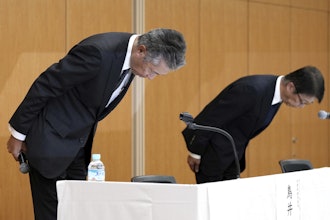
RICHFIELD, Minn. – The U.S. Department of Labor has filed a lawsuit to recover more than $508,000 in back wages and liquidated damages owed to employees of two Richfield grocery stores whose operators paid them an “artificially” low hourly rate to make it appear the employers paid the proper overtime rate.
Filed Dec. 19 in the U.S. District Court for the District of Minnesota, the suit alleges San Miguel Enterprises LLC, operating as La Vaquita-Short Stop, Jimenez Genao LLC, operating as La Vaquita-LV2, and the stores’ part-owner Mariela Jimenez, willfully violated federal wage regulations and denied overtime wages to 49 employees at the two locations. Both stores are jointly owned, and Jimenez manages their day-to-day operations and payrolls.
The action follows an investigation by the department’s Wage and Hour Division that determined the employers owe the affected workers $254,209 in back wages and an equal amount in liquidated damages.
“Our investigation found Mariela Jimenez intentionally miscalculated wage rates to create the appearance she was complying with federal wage laws when, in fact, she was shortchanging employees at two Richfield grocery stores each pay period,” explained Wage and Hour Division District Director Kristin Tout in Minneapolis. “The case shows that compliance with federal wage regulations is not open to interpretation or choice. It also demonstrates that the consequences for violating workers’ rights can be quite costly.”
Wage and Hour Division investigators reviewed payroll records of La Vaquita-Short Stop from July 8, 2020, through March 26, 2023, and of La Vaquita-LV2 from Nov. 9, 2020 through March 26, 2023, and found the company and Jimenez did the following:
- Used an artificially low hourly rate of pay and mislabeled wages as discretionary bonuses to mask their failure to pay required overtime wages.
- Did not pay overtime rates to employees who worked at both locations when their combined hours exceeded 40 hours in a workweek.
- Incorrectly categorized certain employees as executive or administrative employees exempt from overtime when, in fact, they should have been paid overtime.
- Failed to maintain accurate time records as required.






















